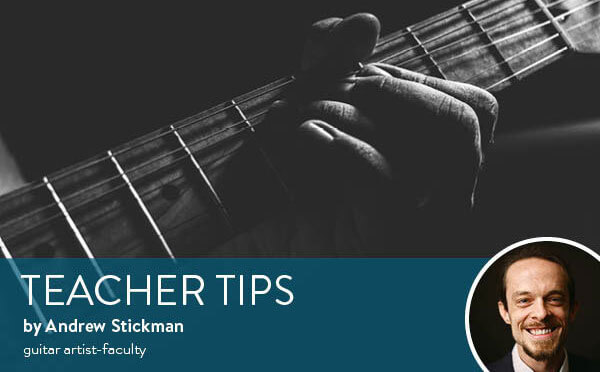April 10th, 2020 • Teacher Tips
Teacher Tips: The Goal of Scales

Teachers aren’t trying to be mean when they tell you to practice your scales. We don’t have to give out busywork, because there is so much to practice, it’s hard sometimes to fit it all in. By playing scales, you are actually covering a lot more ground than what you might realize.
First, you have to learn the scale, make sure it’s in tune, has the correct fingering, proper intonation & technique, steady rhythm, and play it perfectly forwards and backwards before you are able to transpose to different keys on your instrument. Now that you can do all of those things, then it is time to speed it up! Scales always need to be practiced with a Metronome.
Speed is not the goal of scales, but rather a result from playing with proper technique. Speed is not hard either, once you can do something slow on your instrument, it will not be hard to then speed it up. My strings masterclass professor in college would often tell us, “articulation creates the illusion of speed.” Sage advice indeed!
All of this is also true for technical exercises and arpeggio practice, which should be played with the same intensity and focus as your scale practice. There isn’t just one magical scale that covers all of your technical aspects, but rather playing several different scales on your instrument that use different fingerings, shapes, leaps, stretching and shifting, that when added together in a single practice session, can cover a lot of territory. We have major scales, natural, melodic, and harmonic minor scales, diminished, whole tone, and Octatonic scales, and don’t forget about the modes! Don’t worry, there are only five others because major (Ionian) and natural minor (Aeolian) are both modes!
When you’re playing scales, practice articulating different parts of the beat, alternate which note gets the accent (downbeat or upbeat), play legato, play staccato, play quiet as you can, play loud as you can, play with your eyes closed, sing and play, sing solfege, and play your scales EVERYDAY, 5-20 minutes a day depending on your skill level. Ask your teacher what scales make the most sense for you to be working on depending on your instrument and skill level. Keep a log of what your scale speeds are at, because you will see that with consistent practice, you will be able to play faster and with more clarity in just a week’s time!
